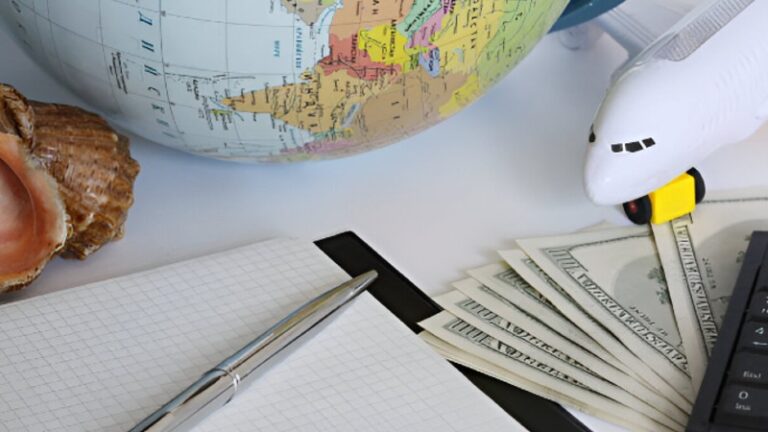Dreaming of exploring new horizons but worried about the financial strain? You’re not alone. The perception that travel demands a hefty bank account often holds many back from embarking on their desired adventures. However, with the right strategies and a touch of ingenuity, planning a truly budget-friendly trip to Destination isn’t just possible, it’s an accessible reality for everyone.
Redefining Budget-Friendly Travel
Often, budget travel conjures images of cramped hostels and bland meals. We propose a different view it’s about intentional spending. It’s about identifying what truly matters to you on your trip whether it’s culinary exploration, immersive cultural experiences, or breathtaking natural landscapes and then allocating your funds strategically. This approach allows you to splurge thoughtfully on your priorities while finding clever ways to save on less critical aspects. The goal is to return home with a full heart, not an empty wallet.
Crafting Your Smart Travel Budget
The bedrock of any affordable adventure is a well-defined budget. This isn’t a rigid straitjacket, but a flexible roadmap.
The Dynamic Budget Framework
Instead of a fixed number, think of your budget in terms of flexible percentages across key categories. This allows you to shift funds based on your trip’s unique priorities.
- Transportation: 20-30%
- Accommodation: 25-35%
- Food & Drink: 15-25%
- Activities & Sightseeing: 10-20%
- Miscellaneous & Buffer (Emergency Fund/Souvenirs): 5-10%
Pro Tip: Always include a 5-10% buffer for unexpected costs. A recent survey highlighted that unexpected expenses, like sudden illness or lost luggage, can increase trip costs by up to 15%.
Strategic Saving Habits
Before you even book, cultivate saving habits:
- Automate Savings: Set up automatic transfers to a dedicated Travel Fund savings account. Even small, consistent contributions add up.
- Identify Stealth Savings: Review your daily spending. Could that daily coffee shop visit become a weekly treat? Are there unused subscriptions you can cancel? Small cuts here can significantly boost your travel fund.
- Consider BNPL (Buy Now, Pay Later) for Big Ticket Items: For large initial costs like flights or accommodation, BNPL services like Zip (in regions where available) can offer payment flexibility, allowing you to secure early bird deals without impacting your immediate cash flow. This is particularly useful for booking several months in advance when prices are typically lower.
Unlocking Affordable Transportation
Flights and long-distance travel often represent the largest chunk of your budget. Smart planning here yields significant returns.
Flight Hacking for Your Budget-Friendly Trip to Destination
- Flexibility is Your Superpower: This is the single most impactful tip.
- Dates: Shift your travel by a day or two, or opt for mid-week flights. Flying during the shoulder season (just before or after peak) often combines good weather with lower prices. Data shows flights can be 20-40% cheaper outside peak times.
- Airports: Explore smaller, nearby airports. Sometimes flying into a secondary airport a short train ride away can save hundreds.
- Utilize Comparison Tools & Alerts: Use platforms like Google Flights, Skyscanner, Momondo, or Kayak. Set price alerts for your desired route and be prepared to book when prices drop. Searching in incognito mode can prevent price increases based on your search history.
- Befriend Budget Airlines: Carriers like Ryanair, AirAsia, or Spirit offer ultra-low fares. Just be vigilant about baggage fees and add-ons pack light to avoid these.
- Consider Hidden City Ticketing (Use with Caution): For domestic routes, sites like Skiplagged might find cheaper fares by booking a flight with a layover at your actual destination. Only use if you’re not checking luggage.
Mastering Ground Transit
- Public Transport is King: Embrace local buses, trains, and metro systems. They are almost universally cheaper than taxis or ride-shares and offer an authentic local experience. Learn how to use local transit maps or apps like Rome2Rio/Moovit.
- Overnight Travel: For inter-city journeys, consider overnight buses or trains. This clever hack saves you the cost of a night’s accommodation.
- Walk or Bike: The cheapest and often most rewarding way to explore. Many cities offer bike-sharing programs for short, affordable rides.
Accommodation for Every Budget
Accommodation can be your biggest expense. Diversifying your lodging choices is crucial.
- Hostels: Modern hostels often offer private rooms, great amenities, and vibrant social scenes, dispelling old stereotypes. They’re excellent for solo travelers or those seeking community.
- Airbnb & Short-Term Rentals: Ideal for longer stays (weekly/monthly discounts often apply) or groups, especially if you prioritize kitchen access to save on food. Always check the final price, including cleaning fees, before booking.
- Beyond the Beaten Path: Look for accommodations a few metro stops or a short walk away from the main tourist hubs. Prices can drop dramatically just by being slightly outside the immediate city center.
- Free Stays: The Ultimate Budget Hack:
- Couchsurfing: Offers free accommodation and a unique cultural exchange with locals. Requires a good profile and references.
- House Sitting/Pet Sitting (e.g., TrustedHousesitters): Stay for free in exchange for caring for someone’s home or pets.
- Work Exchange/Volunteering (e.g., Worldpackers, Workaway, WWOOF): Work a few hours a day in exchange for free lodging and sometimes meals. This is a fantastic way to immerse yourself and extend your trip significantly.
Accommodation Cost Comparison Table
| Accommodation Type | Typical Cost (Per Night) | Pros | Cons |
| Luxury Hotel | $200+ | Full amenities, service, privacy | Highest cost, less local immersion |
| Mid-Range Hotel | $100-$200 | Comfort, amenities, usually central | Can still be pricey, less unique |
| Budget Hotel/Guesthouse | $50-$100 | Good value, privacy | Fewer amenities, may be less central |
| Hostel (Dorm) | $15-$40 | Very cheap, social, central often | Shared space, less privacy |
| Airbnb (Private Room) | $30-$80 | Local feel, often kitchen access | Cleaning fees, host dependency |
| Airbnb (Entire Place) | $50-$150 | Privacy, kitchen access | Potentially high fees, less service |
| Couchsurfing | Free | Free, local insight, cultural exchange | Limited privacy, relies on host goodwill |
| Work Exchange | Free | Free lodging & food, immersive | Requires work, specific opportunities |
Costs are highly variable by destination and time of year.
Dining Like a Local, Not a Tourist
Food is an integral part of travel, but it doesn’t have to break the bank.
- Embrace Street Food & Local Markets: This is often the most delicious, authentic, and affordable way to eat. Look for long lines of locals that’s your sign.
- Grocery Store Adventures: Stock up on snacks, picnic supplies, or ingredients for simple meals if your accommodation has a kitchen. A baguette, local cheese, and fruit from a market make a gourmet-level picnic for a fraction of restaurant costs.
- Leverage Free Breakfasts: If your hotel or hostel offers complimentary breakfast, take full advantage. It’s one less meal to worry about.
- Smart Restaurant Choices: Avoid eateries directly next to major tourist attractions. Walk a few blocks away, and you’ll find better food at lower prices. Use apps like Google Maps or Yelp to find highly-rated, budget-friendly local spots.
Engaging Without Overspending
Experiencing a destination doesn’t require constant spending.
- Free Walking Tours: Many cities offer tip-based tours that provide an excellent introduction to the history and culture. Remember to tip your guide!
- Museums & Galleries: Research free admission days/hours or perpetually free institutions (e.g., British Museum, Smithsonian).
- Nature’s Playground: Parks, beaches, hiking trails, public gardens – these are often free and offer immense beauty and tranquility.
- Local Events: Check local community boards, Facebook groups, or tourism websites for free festivals, concerts, or markets happening during your visit.
- Credit Card Rewards & Loyalty Programs: Don’t forget to utilize accumulated travel points or loyalty benefits from airlines and hotels. These can often be redeemed for experiences, discounts, or even free nights, further enhancing your budget-friendly trip to Destination.
Avoiding Common Budget Traps
Even with meticulous planning, subtle pitfalls can erode your budget.
- Currency Exchange Rip-offs: Avoid exchanging money at airports or hotels – their rates are predatory. Use local ATMs (inform your bank beforehand) or travel-friendly credit/debit cards with no foreign transaction fees. Always choose to be charged in the local currency when paying by card.
- Hidden Fees: Always read the fine print for resort fees, cleaning fees, baggage fees, and even early checkout charges. Factor these into your initial budget.
- Tourist Traps: Overpriced souvenirs, mediocre food at inflated prices, and unnecessary services near major landmarks are common. Ask locals for recommendations and venture slightly off the main drag.
- Over-Planning: While planning is good, over-scheduling can lead to rushed experiences and impulse spending to stay on a tight timeline. Allow for spontaneous, free exploration.
Conclusion
Planning a budget-friendly trip to Destination is more than just saving money; it’s about traveling smarter, experiencing deeper, and making intentional choices that align with your values. By embracing flexibility, leveraging alternative accommodations and transportation, dining like a local, seeking out free activities, and staying vigilant against hidden costs, you can unlock incredible adventures without financial stress. The world is waiting, and it’s more accessible than you think. Start planning your next adventure today and prove that memorable journeys don’t require an unlimited bank account.
Frequently Asked Questions (FAQs)
What’s the most effective way to save money on flights for a budget trip?
Flexibility with your travel dates and airports, using flight comparison tools, and booking during the shoulder season are key strategies to secure cheaper airfare.
Are hostels a good option for a budget-friendly trip?
Yes, hostels are excellent for budget travelers, offering affordable lodging and opportunities to meet other travelers. Many even have private room options.
How can I save on food expenses while traveling on a budget?
Focus on street food, shopping at local markets for groceries, taking advantage of free hotel breakfasts, and eating at local eateries away from main tourist areas.
What are some free activities I can enjoy on a budget trip?
Look for free walking tours, museums with free admission days, public parks, beaches, hiking trails, and local festivals or events.
Is travel insurance necessary for a budget-friendly trip?
Yes, travel insurance is highly recommended. While it’s an upfront cost, it protects you from significant financial losses due to trip cancellations, medical emergencies, or lost baggage.
How does travel credit card rewards help with a budget trip?
Travel rewards credit cards allow you to accumulate points or miles that can be redeemed for free or discounted flights, hotel stays, and other travel-related expenses.
What is a work exchange and how can it save money on a trip?
A work exchange involves working a few hours a day (e.g., at a hostel or farm) in exchange for free accommodation and sometimes meals, significantly reducing your daily travel costs.


